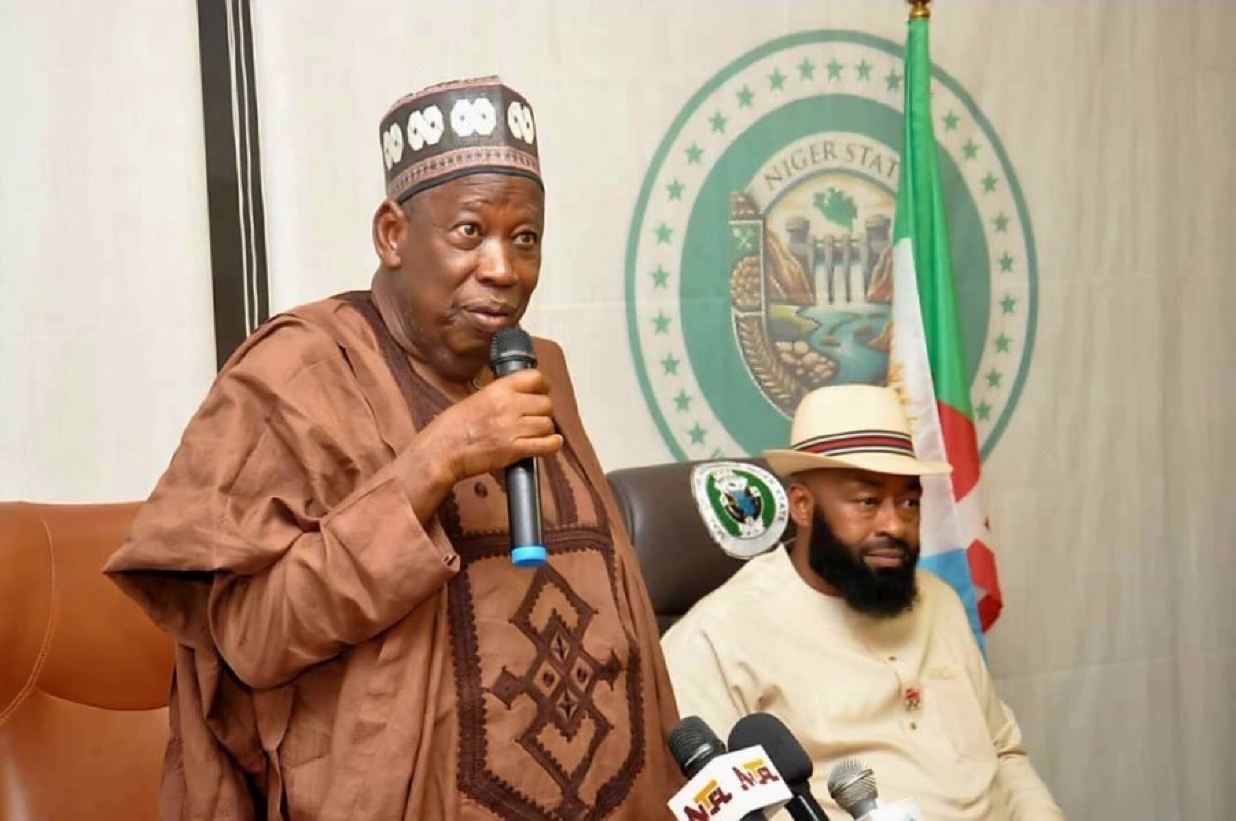
BREAKING: Ganduje Resigns as APC National Chairman Amid Pressure and Health Concerns

In a dramatic turn of events shaking Nigeria’s political landscape, Dr. Abdullahi Umar Ganduje, the embattled National Chairman of the All Progressives Congress (APC), has officially resigned from his position.
This stunning move, confirmed on Thursday, comes amid rising internal party tension, public scrutiny, and alleged pressure from the presidency.
Ganduje, a former two-term governor of Kano State, had taken over the APC leadership in August 2023 following a consensus agreement.
However, his tenure has been clouded by several controversies ranging from allegations of corruption to internal power tussles that weakened the party’s cohesion ahead of the 2027 general elections.
While citing “health-related issues” in his resignation letter, sources within the APC hint that the resignation was far from voluntary.
Party insiders say President Bola Ahmed Tinubu may have played a pivotal role behind the scenes, nudging Ganduje to step aside to avert further internal damage.
Over the past weeks, political watchers observed mounting pressure on the party’s leadership structure, with key stakeholders expressing dissatisfaction over Ganduje’s grip on the party.
In a letter submitted to the National Working Committee (NWC), Ganduje stated that his deteriorating health would no longer allow him to effectively manage the demanding role of national chairman.
He further handed over all administrative responsibilities to the party’s National Secretary, Senator Ajibola Basiru, who is expected to operate in an acting capacity pending a national convention scheduled for December 2025.
The resignation has triggered ripples across Nigeria’s political spectrum. The APC now finds itself at a crossroads, scrambling to preserve unity, reassert control, and restore public confidence.
With key elections looming on the horizon, the timing of Ganduje’s exit could not be more critical. Analysts believe this marks the beginning of major political realignment within the ruling party, as power blocs jostle for dominance.
The resignation has already dominated headlines and social media conversations, making it one of the most searched political stories of the hour.
What lies ahead for the APC remains uncertain. With Ganduje out of the picture, the party must now choose between stabilizing under interim leadership or risking deeper fractures.
Either way, today’s development marks a critical moment in Nigeria’s political future — one that could redefine the power dynamics ahead of the 2027 elections.
As the nation watches closely, one thing is certain: the Ganduje era has ended, and a new chapter in APC’s political journey has just begun.


